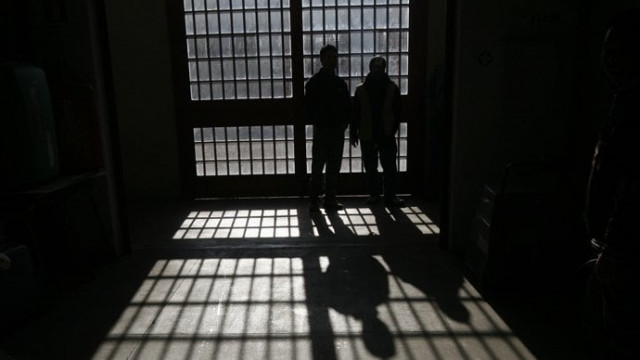Call for protecting rights of prisoners with psychological disorders
Speakers at workshop emphasise on implementing laws to protect the vulnerable

Speakers at workshop emphasise on implementing laws to protect the vulnerable. PHOTO: REUTERS
The judges, prosecutors, lawyers, jail administration and the jail psychiatrists should play their role in securing the rights of the mentally-challenged prisoners, they said at the workshop JPP hosted in collaboration with Rawalpindi Medical University and Pakistan Society of Psychiatrists.
Experts presented their suggestions for the provision of a healthy atmosphere for such inmates for keeping their minds stress free. They also emphasised the implementation of existing laws for prisoners suffering from psychiatric disorders.
"The aim of this training is to bridge the gap between psychiatry and law," said Dr Khurram Hussain, a Consultant Forensic Psychiatrist at the State Hospital Car stairs, Scotland. These fields have their own languages and sometimes they struggle to interact with each other, he added during his interactive training session.
Speaking at the workshop, Founder and Executive Director JPP Sarah Belal stressed the need for promoting forensic psychiatric services. She added that although laws were present for the protection of rights of mentally-ill prisoners however there was still a big room for improvement in them.
Sarah said that lawyers, judges, jail administration, and the prosecutors needed to play their role.
"In a criminal justice system where the odds are so heavily stacked against the marginalised, we need to ensure that the rights of people with mental disorders are inviolable," said Sarah.
LHC CJ seeks SOPs on rights of condemned prisoners
"They (people suffering from psychological disorders) are one of the most vulnerable individuals of our society and require adequate safeguards to protect them," she added.
Rawalpindi Medical University Vice Chancellor Professor Muhammad Umar, Pakistan Psychiatry Society President Professor Dr Iqbal Afridi, and veteran psychiatrist Professor Malik Hussain Mubbashar also spoke on the occasion.
They said that even though people with mental illnesses are among the most vulnerable group of individuals, their vulnerability is seldom recognised or accorded the appropriate level of protection in the criminal justice system.
According to the latest report by the prison reforms commission constituted by the Islamabad High Court, there are 594 prisoners with mental disorders in various jails across Pakistan. These prisoners are often labelled as 'inherently dangerous' and are consequently subjected to cruel and unusual punishment, including capital punishment which is strictly prohibited under international law.
Alarmingly, around 50 million people suffer from some sort of mental illness in Pakistan and the lack of mental health treatment and training in the criminal justice system generally means that many individuals never even get diagnosed.


















COMMENTS
Comments are moderated and generally will be posted if they are on-topic and not abusive.
For more information, please see our Comments FAQ